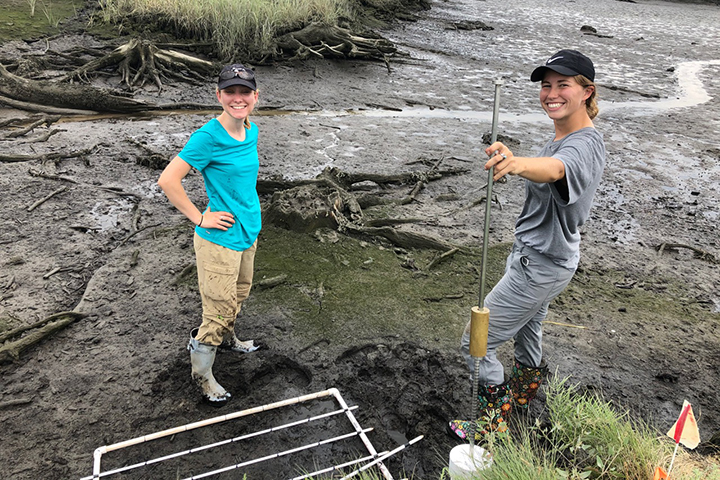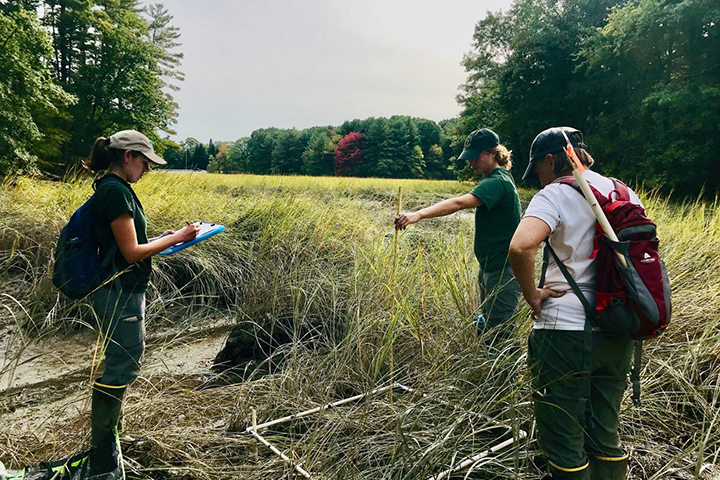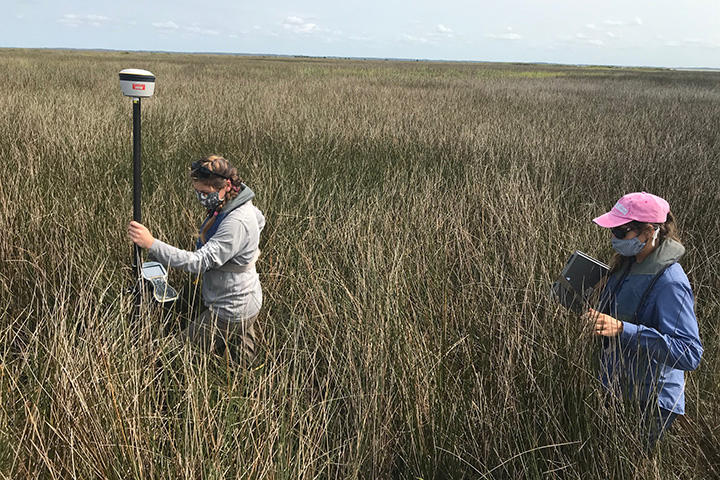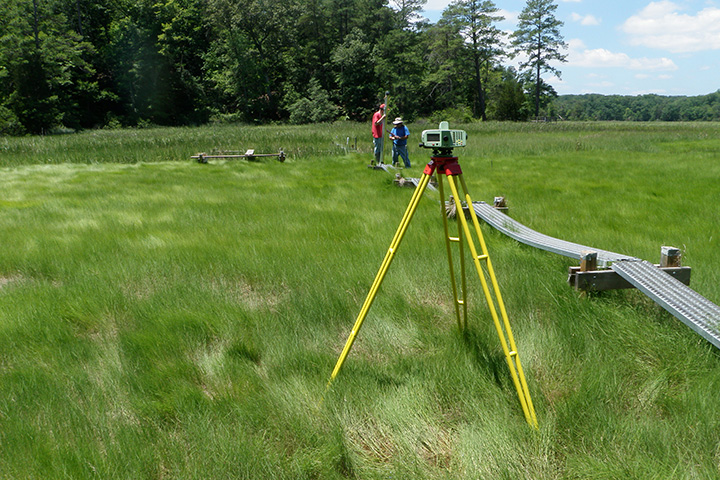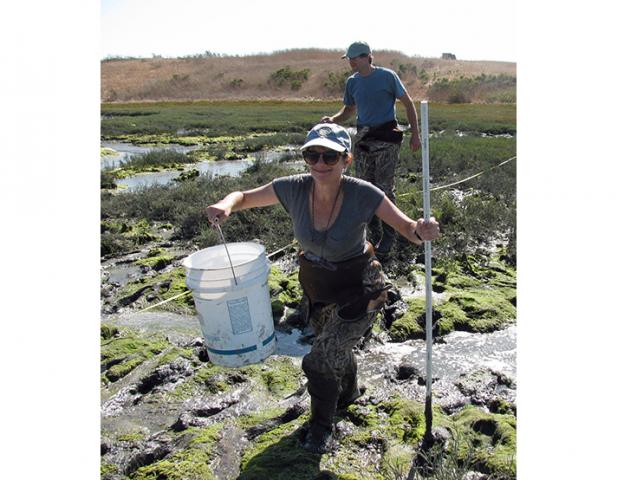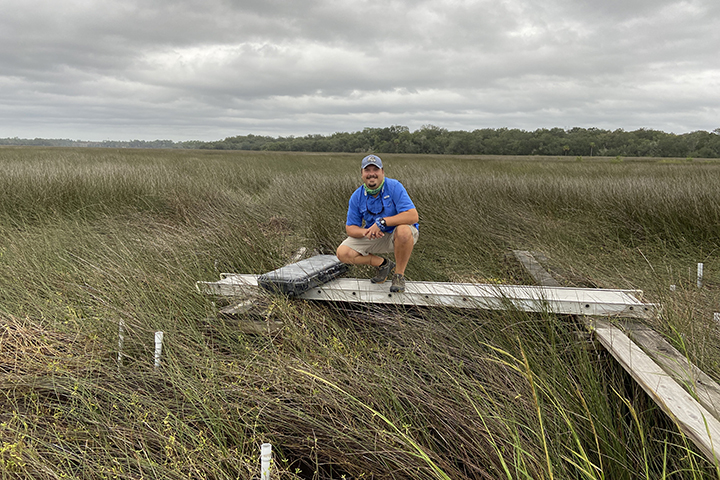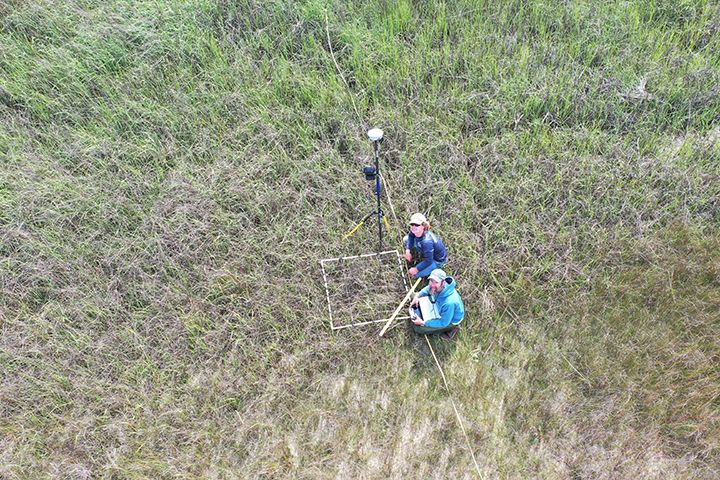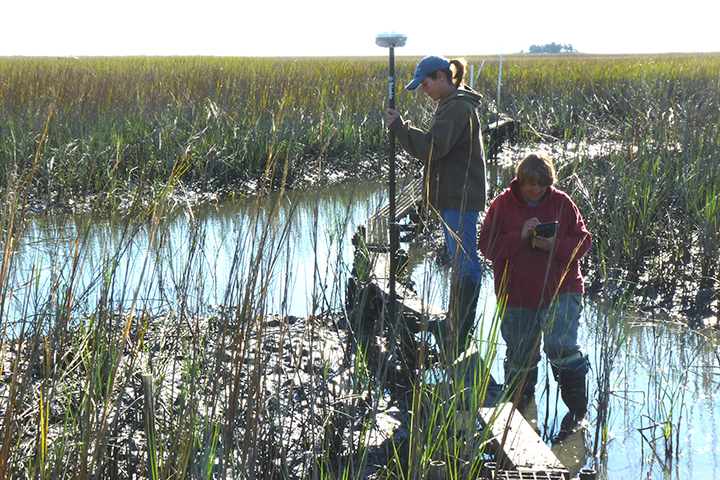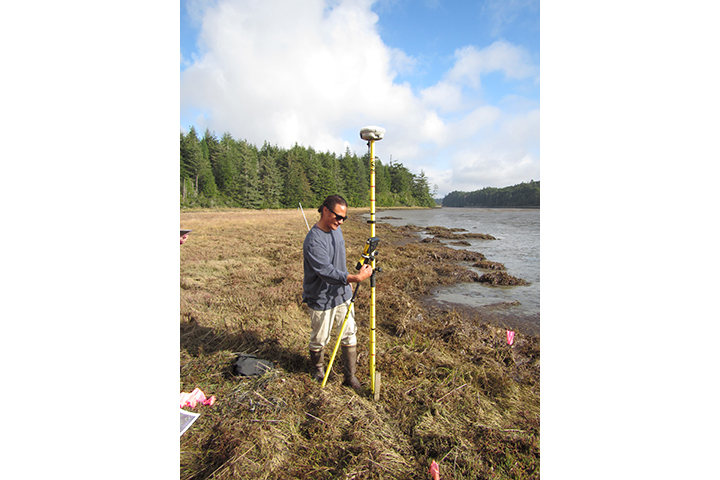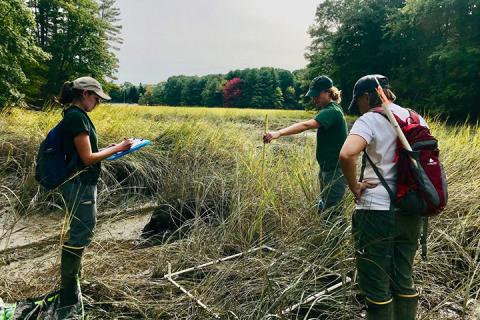
This project will leverage the Reserve System’s geographic diversity, nationally coordinated monitoring program, communication networks, and strong record of collaborative research to conduct a groundbreaking national study examining how marsh plant communities are responding to climate change.
Tidal marshes are facing tremendous pressures from climate change, including accelerated rates of sea-level-rise, increased storm activity and precipitation extremes, lengthened growing seasons and shifts in salinity regimes. Recent research within National Estuarine Research Reserve (NERR) sites has revealed striking changes in plant communities that seem to be caused by rising seas, including shifts toward more flood tolerant species, lower overall plant diversity, and in some cases growing swaths of bare ground.
This three-year collaborative research project builds on the results and tools generated by two catalyst projects that looked at changes in vegetation and marsh surface elevation. The project team will use a variety of NERR datasets to quantify shifts in plant species ranges and patterns of diversity and productivity across latitudes and regions, and then evaluate local and regional drivers of vegetation change. The team will engage staff from 21 reserves as well as external advisors to help integrate existing datasets from across the country and ensure that tools and products are useful for a variety of audiences. In addition to providing key insights into how climate change is affecting marshes nationwide, the project will generate reserve-specific templates and automated tools for data analysis and visualization that can be easily updated, and with modification could be transferable to other organizations with marsh monitoring or other coastal vegetation datasets (e.g., seasgrasses, mangroves). Ultimately, the project will elevate the visibility and advance the application of the Reserve System’s long-term monitoring program and provide a framework for facilitating other national-level synthesis efforts.
Project References
Project Lead Chris Peter (Great Bay NERR) gives a 5-minute introduction to "A National Synthesis of Tidal Marshes to Detect Impacts of Climate Change across Multiple Scales. The presentation was given during a project team workshop in July 2021.
